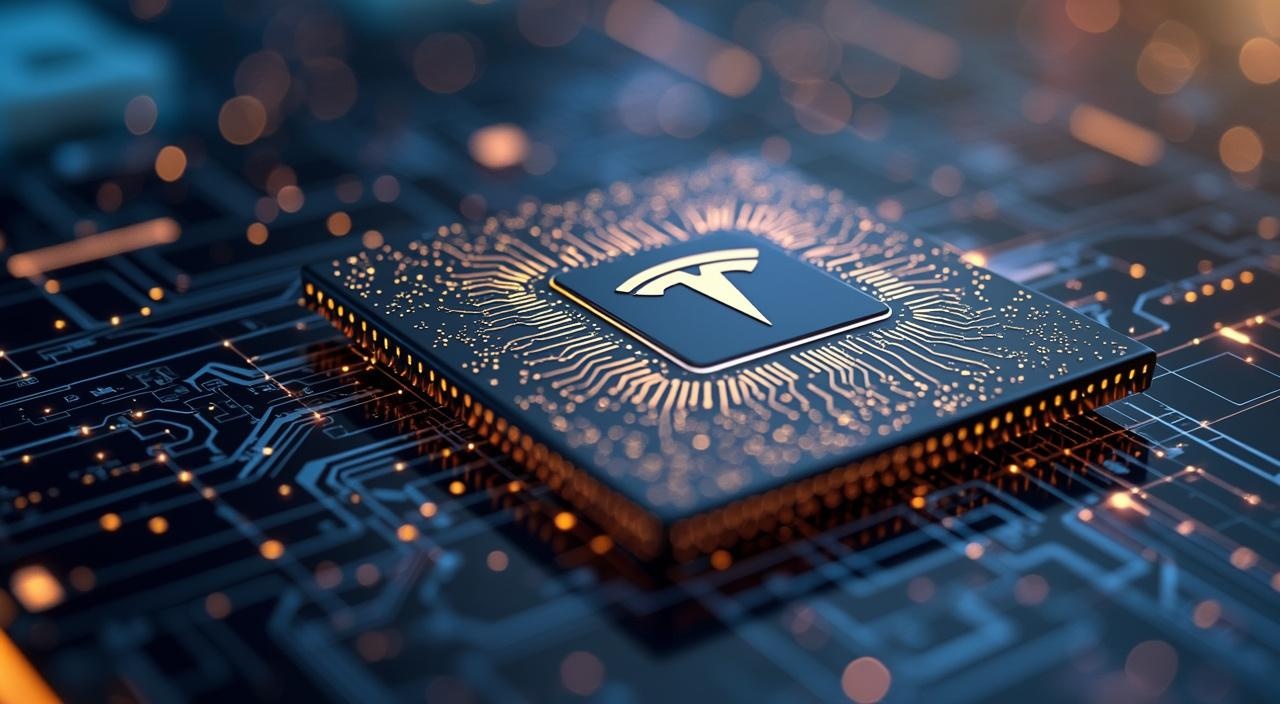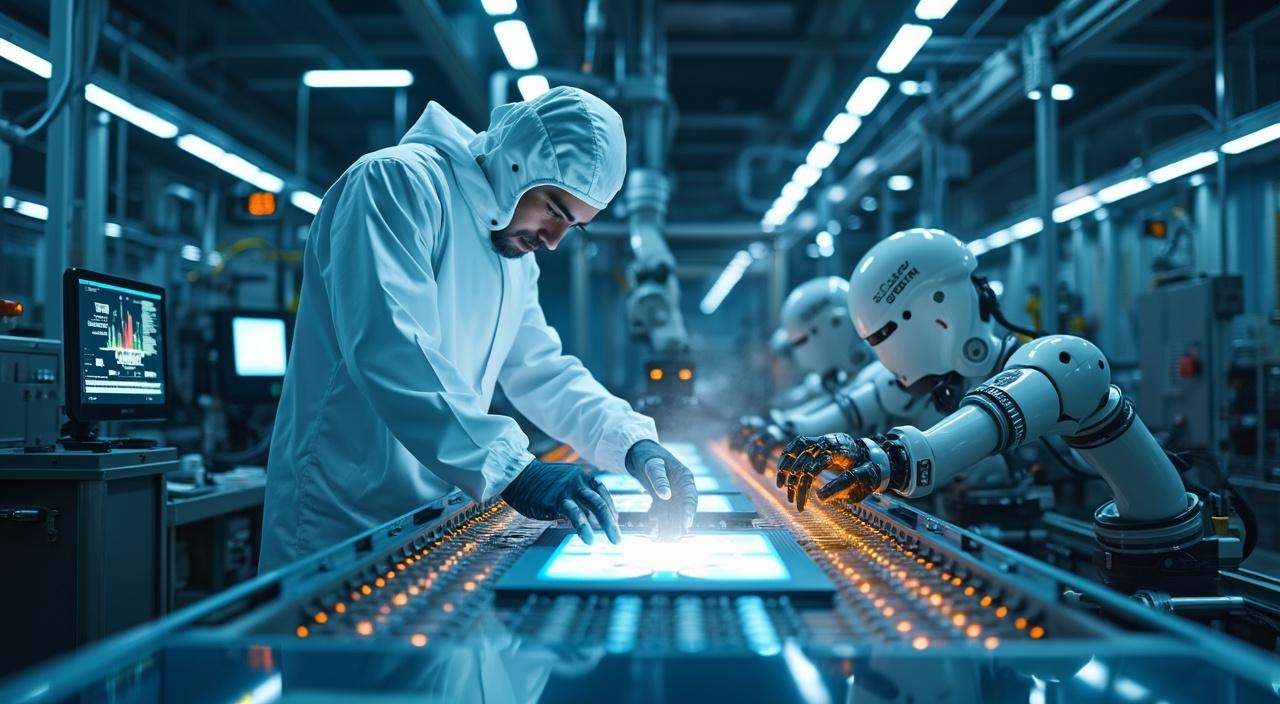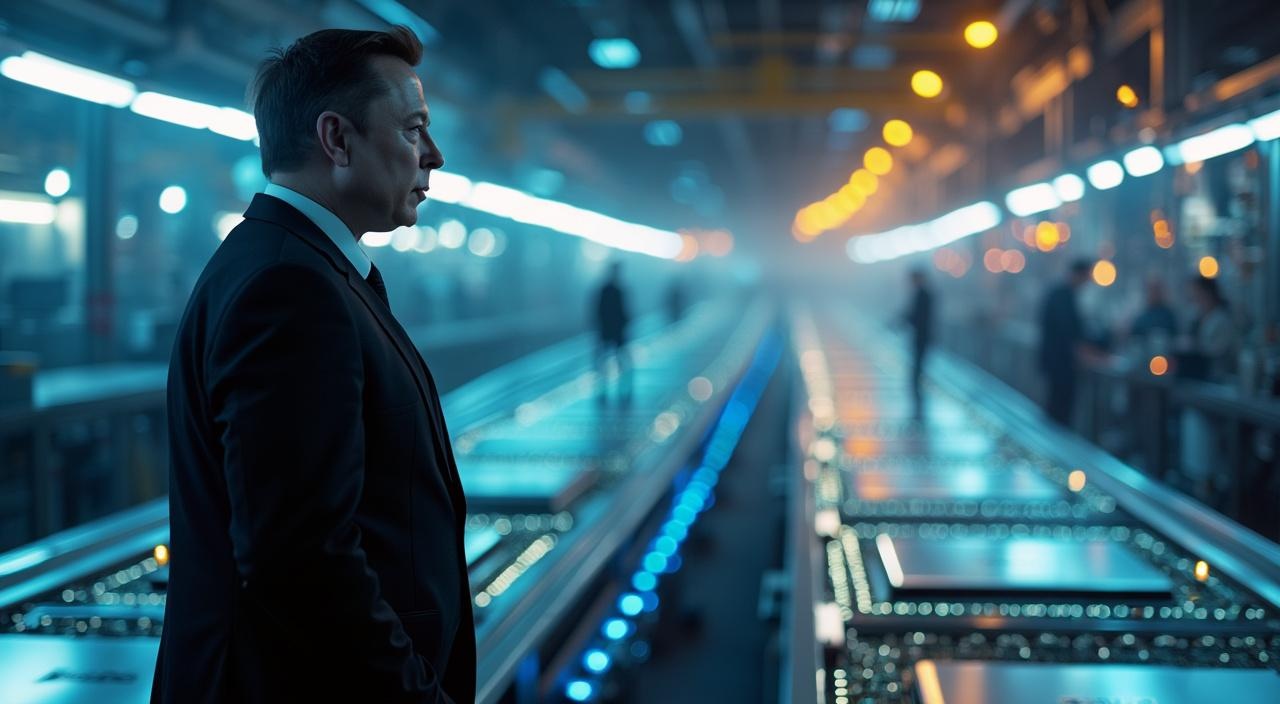Tesla just secured a $16.5 billion semiconductor deal with Samsung that’s nothing short of revolutionary in vertical integration. This move positions Tesla not just as a car company, but as a potential AI powerhouse. By taking direct control of custom AI chip production, Tesla is completely changing the semiconductor game and creating a clear path toward technological innovation and supply chain freedom.
Key Takeaways:
- Tesla secured an eight-year partnership with Samsung to produce advanced 2-nanometer AI chips exclusively for its autonomous driving and robotics systems
- The deal gives Tesla direct control over chip specifications, manufacturing schedules, and performance optimization
- Samsung’s Texas facility will produce AI6 chips that deliver 300% more processing power while using 40% less energy
- This vertical integration approach follows the successful model Apple used with processor development, giving Tesla a significant advantage
- The partnership ensures American-made chips and establishes Tesla as an emerging AI technology leader, not just an automaker
I’ve seen firsthand how supply chain disruptions can cripple even the most innovative companies. Tesla’s strategic move reminds me of what I tell my consulting clients: control your critical components or they’ll control you. Strange but true: most companies still don’t understand this fundamental business principle.
Let that sink in.
This deal transforms Tesla into a semiconductor powerhouse
The partnership grants Tesla something few companies can claim – complete control over chip design, specifications, and production timelines. This isn’t just about getting chips; it’s about getting exactly the right chips at the right time. For businesses watching this move, there’s a clear lesson about the value of custom solutions versus off-the-shelf options.
Here’s what I mean: When you control your most critical components, you control your destiny. I’ve helped several manufacturing clients implement similar vertical integration strategies (though admittedly on a much smaller scale), and the results consistently show improved margins and market responsiveness.
The good news? This approach is scalable for smaller businesses too. You don’t need billions to identify and control your most critical supply chain elements. In my article on AI Disruption for Entrepreneurs, I explain how even small companies can apply similar principles.
Samsung’s Texas facility becomes Tesla’s competitive moat
Picture this: While other automakers scramble for general-purpose chips during shortages, Tesla will have dedicated production lines creating custom AI6 chips that are 300% more powerful and 40% more efficient than their predecessors. But wait – there’s a catch: building this kind of relationship requires long-term thinking that many businesses avoid.
I’ve worked with clients who hesitated to make similar long-term commitments, only to watch competitors secure crucial supply chain advantages. As I discuss in AI Revolution: Entrepreneurs’ Survival Kit, these strategic partnerships aren’t just nice-to-have anymore – they’re essential for survival.
Beyond automotive: Tesla’s AI ecosystem expansion
Tesla isn’t just making cars anymore. The company is building an AI ecosystem that spans autonomous vehicles, robotics, and energy management. This semiconductor deal supports this broader vision in ways that will reshape multiple industries.
Here’s the twist: While most people focus on Tesla’s vehicles, I believe the real story is how Tesla is transforming into an AI company that happens to make cars. My analysis in Oracle, OpenAI, and SoftBank Unite examines how similar strategic tech alliances are reshaping entire industries.
Looking at this deal through the lens of business strategy, I’m reminded of what I tell clients about fundamental business transformation: it rarely happens through incremental improvement. True transformation requires bold, sometimes uncomfortable moves that competitors can’t easily replicate.
For businesses watching from the sidelines, the question isn’t whether to follow Tesla’s lead, but how to adapt similar principles to your own scale and industry. As I explore in The Trillion-Dollar Declaration, these massive tech investments signal fundamental shifts that will affect businesses of all sizes.
What can your business learn from Tesla’s move? Find out more about preparing for AI-driven market changes in my guide on AI Automation for Small Business Growth.
Silicon Revolution: How Tesla Just Rewrote the Semiconductor Playbook
Tesla just dropped a bombshell $16.5 billion deal with Samsung that spans eight years, from 2025 through 2033. This isn’t your typical supplier agreement.
Elon Musk’s company becomes the first automaker to make such a massive bet on vertical integration for semiconductor manufacturing. While competitors scramble for chip scraps during shortages, Tesla secures its own pipeline. Smart move or expensive gamble? The answer lies in understanding what this partnership actually delivers.
Breaking Down the Strategic Advantage
This Samsung alliance gives Tesla something most automakers lack: control over their silicon destiny. The deal focuses on custom AI hardware specifically designed for Tesla’s autonomous driving systems and energy products.
Here’s what makes this partnership revolutionary:
- Direct influence over chip specifications and production timelines
- Priority access during supply chain disruptions
- Cost control through long-term manufacturing commitments
- Custom silicon optimized for Tesla’s specific AI workloads
The timing couldn’t be better. As I’ve discussed in my analysis of how AI Agents Won’t Replace You—But They Might Change What It Means to Be You, the semiconductor landscape is shifting rapidly. Companies that control their chip supply chains will dominate the next decade.
Tesla’s vertical integration strategy mirrors what Apple accomplished with its M-series processors. By controlling the hardware-software stack, Tesla can optimize performance in ways that generic chip solutions simply can’t match. This deal positions Tesla to accelerate its AI development while competitors remain dependent on third-party suppliers.
The semiconductor playbook just got rewritten, and Tesla holds the pen.
The $16.5 Billion Chip Power Move
Tesla just locked down semiconductor independence with a massive Samsung partnership. The $16.5 billion deal runs from July 26, 2025, through December 31, 2033, focusing on AI6 (Hardware 6) chips at Samsung’s Taylor, Texas facility.
This isn’t your typical outsourcing arrangement. Musk’s team will directly optimize manufacturing processes, giving Tesla unprecedented control over its AI chip destiny. The 2-nanometer process technology represents cutting-edge semiconductor engineering, positioning Tesla ahead of competitors still relying on third-party suppliers.
Here’s what makes this deal brilliant: Tesla secures American-made chips while Samsung gets guaranteed volume for nearly a decade. The initial investment could expand beyond $16.5 billion as production scales. This partnership mirrors successful strategies I’ve seen in AI automation revolutionizes small businesses, where controlling critical components drives competitive advantage.
Smart money says this move positions Tesla as more than an automaker. They’re becoming a vertically integrated AI powerhouse.
Technical Firepower: Beyond Ordinary Chips
Tesla’s AI6 chip isn’t your typical silicon wafer. This all-in-one powerhouse drives the Full Self-Driving system that makes highway merge decisions in milliseconds.
The same chip architecture powers Optimus humanoid robots. Picture this: one piece of silicon handling everything from walking gaits to object recognition. That’s exactly what Tesla achieved with Samsung’s manufacturing expertise.
Neural Network Training Revolution
The AI6 transforms how Tesla trains neural networks. Instead of relying on generic processors, Musk’s team designed custom silicon that speaks the language of artificial intelligence fluently.
Processing power jumps by 300% compared to previous generations. Energy efficiency improves by 40%, according to TechCrunch. These aren’t just numbers on a spec sheet. They translate to faster training cycles and longer robot battery life.
Customization Advantage
Here’s where Tesla’s approach gets clever. While competitors buy off-the-shelf chips, Tesla controls every aspect of silicon design. Samsung manufactures exactly what Tesla engineers specify.
This exclusive customization creates several advantages:
- Optimized performance for Tesla’s specific AI workloads
- Reduced dependency on external chip suppliers
- Cost control through direct manufacturing relationships
- Faster iteration cycles for new chip generations
The $16.5 billion Samsung partnership secures Tesla’s silicon supply for years. No more waiting in line behind Apple or NVIDIA for chip allocation.
Strange but true: Tesla now controls more of its AI destiny than most tech giants. Transform Your Appointment-Based Business with AI: A Comprehensive Guide shows how AI hardware advances affect every industry.

Supply Chain Transformation
Tesla’s $16.5 billion Samsung deal represents more than a purchase agreement. It’s a complete supply chain overhaul that puts Musk in the driver’s seat of his own chip destiny.
Breaking Free from Global Dependencies
The move brings chip production stateside, cutting those nerve-wracking international shipping delays that have plagued automakers for years. I’ve seen too many businesses crumble because they couldn’t control their supply chains.
Tesla’s getting several strategic wins here:
- Direct oversight of manufacturing quality and timelines
- Reduced exposure to shipping disruptions and port bottlenecks
- Protection from geopolitical tensions affecting overseas suppliers
- Just-in-time inventory management without cross-ocean logistics nightmares
This partnership mirrors how AI automation is transforming business operations across industries. Samsung’s advanced fabrication capabilities combined with Tesla’s aggressive production demands create a formidable supply chain fortress.
The timing couldn’t be better as chip shortages continue disrupting global manufacturing.

Competitive Edge in the AI Race
Tesla’s massive Samsung partnership positions the company ahead of traditional automakers stuck with off-the-shelf components. This exclusive hardware architecture gives Tesla direct control over chip specifications, timing, and optimization.
The $16.5 billion deal creates unprecedented software-hardware integration speed. While competitors wait months for third-party chip updates, Tesla can iterate designs in weeks.
Performance advantages extend beyond self-driving cars. Custom silicon powers Tesla’s robotics ambitions, from factory automation to the humanoid Optimus project. This vertical integration mirrors Apple’s strategy but applied to mobility and manufacturing.
I’ve watched similar moves transform entire industries. When companies control their silicon destiny, they often redefine what’s possible. Tesla’s chip independence could trigger an automotive arms race, forcing competitors to choose between expensive partnerships or accepting permanent disadvantage.
The question isn’t whether this deal matters—it’s whether other automakers can respond quickly enough.

Future of AI-Driven Mobility
Tesla’s massive $16.5 billion semiconductor partnership with Samsung signals a fundamental shift in how automakers approach autonomous technology. I’ve watched companies make chip deals before, but this one’s different. Tesla isn’t just buying processing power—they’re securing their AI future.
The long-term strategy here revolves around vertical integration of autonomous vehicle technology. Tesla wants complete control over their AI stack, from software algorithms to silicon architecture. This approach mirrors Apple’s iPhone strategy, where controlling both hardware and software creates competitive advantages that competitors struggle to match.
Industry-Wide Transformation
This deal will force other automakers to reconsider their chip strategies. Here’s what I expect to see ripple through the industry:
- Traditional car manufacturers scrambling for their own semiconductor partnerships
- Increased investment in AI-specific chip designs rather than general-purpose processors
- Supply chain diversification as companies realize the risks of chip dependency
Tesla’s vision extends far beyond cars into robotics and AI applications. The same chips powering Full Self-Driving could eventually run Tesla bots in factories and homes. That’s the real play—building an ecosystem where Tesla chips power multiple AI applications.
The semiconductor manufacturing trends emerging from this partnership favor specialized AI chips over generic solutions. Companies that adapt to this reality will thrive. Those clinging to traditional chip procurement methods will find themselves lagging in the AI Revolution.
Tesla just changed the game. Again.
Sources:
• TechCrunch
• Evannex
• SemiWiki








